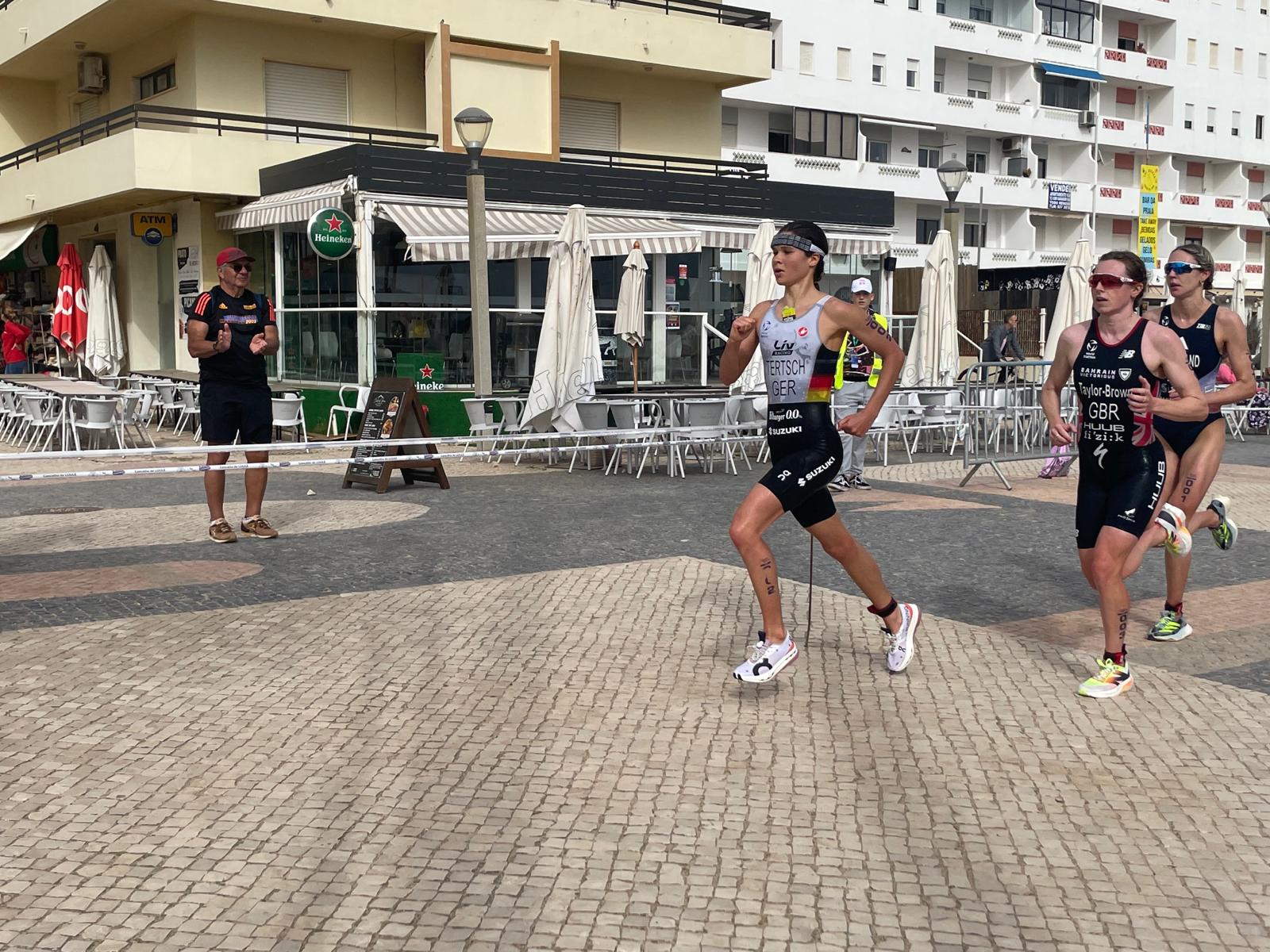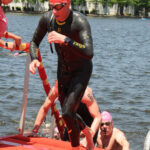Today’s topic in my new blog series, Lessons from Pro Triathletes,, race-week preparation, relates to Lisa Tertsch preparing for the Paris Olympics in July, Ruth Astle getting ready for the Ironman World Championships in Nice and the 70.3 World Championships in Taupo, New Zealand, and Miguel Mattox![]() getting set to return to racing after a serious shoulder injury incurred from a bike crash several months ago. How you structure and proceed through your week before a big race can have an immense impact on how you swim, bike, and run on race day.
getting set to return to racing after a serious shoulder injury incurred from a bike crash several months ago. How you structure and proceed through your week before a big race can have an immense impact on how you swim, bike, and run on race day.
Three Things We Humans Don’t Like
To set the stage for my discussion of race-week preparation, I thought it would be helpful to provide a justification for why being really well prepared the week of a race is so important. There are three things we humans really don’t like (for evolutionary reasons):
- Unfamiliarity
- Unpredictability
- Lack of control
All three of these produce psychological (e.g., negativity, doubt, worry, hyper-focus), emotional (e.g.,  anxiety, irritability), and physiological (e.g., muscle tension, choppy breathing, adrenaline) changes that feel bad and can interfere with your performing your best in the upcoming race.
anxiety, irritability), and physiological (e.g., muscle tension, choppy breathing, adrenaline) changes that feel bad and can interfere with your performing your best in the upcoming race.
Actively preparing yourself during the week of a race can reduce or alleviate these feelings, thus enabling you to compete mentally and physically “there.”
Reduce Mental Clutter and Stress, and Save Energy
Another challenge of race week is that, because of all the things you need to do in the days leading up to the race, you may experience considerable mental clutter and stress, and may burn energy that you would ideally like to save for the race. This reaction is especially true for big races, like the Ironman World Championships or USAT National Championships, where traveling and a new venue are often involved. The more you can do to minimize the former and conserve the latter, the better off you’ll be on race day.
Front Load the “Heavy Lifting”
Overall, as you approach the week of a big race (e.g., Ironman World Championships) or series of races (e.g., USAT Multisport Nationals), you want to front load anything that you think will involve “heavy lifting.” Let me explain what I mean by this. As Ruth, Lisa, and Miguel can attest, the week of a big event is stressful. There is always a lot to do before you leave, upon your arrival, and in the days leading up to the races:
lifting.” Let me explain what I mean by this. As Ruth, Lisa, and Miguel can attest, the week of a big event is stressful. There is always a lot to do before you leave, upon your arrival, and in the days leading up to the races:
- Get organized and packing,
- Travel (especially if flying and racing internationally),
- Transportation upon arrival (finding an Uber/Lyft big enough for your bike box or picking up your rental car)
- Find and settle into your hotel room or Airbnb,
- Unpack and assemble your bike,
- Buy food for the week (finding the nearest supermarket)
- Get the lay of the land (how to get to the race venue, and doing recon of the race venue and courses),
- Stay active (where can you swim, bike, and run?),
- Know the schedule (including when to register, mandatory meetings, bike drop-off, transition set-up, race start time),
- And much more.
You want to make sure you have done everything you can before you leave (the heavy lifting), so you only have to do the basics (the light lifting) once you arrive and approach race day.
Race-week Preparation
Even though the 2024 Olympics are still more than four months away, Lisa and I are already beginning to  create and refine a race-week plan that will maximize her readiness for Paris. She is testing out her race-week protocol at international races around the world (including her first test at a European Cup race in Portugal last weekend; she won!).
create and refine a race-week plan that will maximize her readiness for Paris. She is testing out her race-week protocol at international races around the world (including her first test at a European Cup race in Portugal last weekend; she won!).
Read the Athlete Guide. I’ve competed in six World Championships over the last three years as a member of Team USA. As a part of the lead-up to the races, Team USA members are encouraged to sign up for a shared messaging app in which USAT officials and athletes can communicate. I am constantly shocked by how many of my teammates ask questions that are clearly answered in the event’s Athlete Guide. In other words, many of my fellow competitors aren’t reading the Athlete Guide! And it is very clear to me that most of these questions are saturated in doubt, worry, and stress.
This “laziness” (or perhaps it’s inexperience?) violates a message that I have gotten from Lisa, Ruth, and Miguel loud and clear, and that is also a key theme of this article: “knowledge is power.” The more you know about the upcoming race, the less likely you will experience the three uncomfortable feelings I described above, have mental clutter, feel stress, and burn unnecessary energy, and the better prepared you will be to perform your best on race day.
Control your time & space. This somewhat sci-fi-sounding subheading means that you should know and take control of everything related to scheduling and location during race week. First, you will want to review and become familiar with the official event schedule (usually found on the official website), so you know when and where you need to be leading up to the race. I would recommend that you print the schedule, so you have easy access rather than having to pull it up on your phone or laptop.
review and become familiar with the official event schedule (usually found on the official website), so you know when and where you need to be leading up to the race. I would recommend that you print the schedule, so you have easy access rather than having to pull it up on your phone or laptop.
You can also create your own personal schedule around your official obligations. Key parts of your personal schedule might include your sleep, when and where you will swim, bike, and run, eat your meals, and do your recovery, to name a few, in the days before the event.
Recon the courses. The overriding message I heard from Lisa, Ruth, and Miguel on this topic was: “No surprises!” Thanks to race-venue maps, Google Maps, YouTube videos, and some indoor training platforms (e.g., Rouvy and Full Gaz), you can familiarize yourself (and even “see” and even ride the  courses virtually) long before the race. As an example, even though the Ironman World Championship for women isn’t until September, Ruth recently spent a week in Nice, France, studying the courses, particularly the bike course and its challenging climbs and descents.
courses virtually) long before the race. As an example, even though the Ironman World Championship for women isn’t until September, Ruth recently spent a week in Nice, France, studying the courses, particularly the bike course and its challenging climbs and descents.
Once you arrive at the race site, you can get first-hand experience of the courses. If possible, you want to swim, bike, and run the routes at least once before your race (I rode the bike course at the 2023 World Standard & Super-sprint Championships in Pontevedra, Spain, twice and it really helped).
There are essential data you want to dial in to maximize your familiarity, predictability, control, and comfort with each discipline (plus the transitions). I’ll do a deep dive into those vital areas in a future article.
Focus on the now. Because there are so many things to do in the lead-up to a big race, it’s easy to get distracted by everything you need to do before the race start. Here are some suggestions to keep you focused on the here-and-now.
First, make sure you have all your “ducks in a row” before you leave home. This step will reduce your feelings of being overwhelmed upon your arrival.
feelings of being overwhelmed upon your arrival.
Second, create a schedule of what you need to do and when you need to do it. This step ensures that everything leading up to the race is familiar, predictable, and, for everything you can control, within your control.
Third, focus on one thing at a time, do it, and then move on to the next task. This step will help you reduce your mental clutter and keep your stress levels down to a manageable level.
Lastly, focus only on the present. If something already went wrong, you can’t change the past. Yet, as the saying goes, “You can ruin a perfectly good present by worrying about the past.” Conversely, you can’t do  anything about the future (except by focusing on the present), so stressing about it will likely only lead to the future that is causing you to stress in the present. If you focus on what you need to do now, you better prepare yourself for whatever might happen in the future.
anything about the future (except by focusing on the present), so stressing about it will likely only lead to the future that is causing you to stress in the present. If you focus on what you need to do now, you better prepare yourself for whatever might happen in the future.
Establish your priorities. Particularly for big events, there are a lot of “places to go, people to see, and things to do.” The problem with this is that by trying to do all those things may prevent you from being fully prepared to perform your best on race day.
The first two questions you want to ask yourself as you approach a big race is: “Why am I here and what do I want out of this experience?” For some triathletes, they want to experience everything including  sightseeing, socializing with family, friends, and teammates, participate in the local culture, and take in other big events in the area (at the 2023 World Sprint & Mixed-relay Championships in Hamburg, Germany, a number of TeamUSA members attended a Bruce Springsteen concert the night before one of the races).
sightseeing, socializing with family, friends, and teammates, participate in the local culture, and take in other big events in the area (at the 2023 World Sprint & Mixed-relay Championships in Hamburg, Germany, a number of TeamUSA members attended a Bruce Springsteen concert the night before one of the races).
If your priority is to experience everything the race and location have to offer, use the race as a reason to take a vacation, and your race goal is mostly to participate (rather than compete), then more power to you. At the same time, if you prioritize the race as an opportunity to compete against and see how you stack up against the best in the world, then you will likely make some very different choices.
There is no right or wrong answer in terms of what you prioritize. However, there could be significantly different consequences based on the choices you make and the priorities you establish.
Keep it Simple Smart (KISS)
One of the most important messages related to approaching a race that I have conveyed to the pros I work with is the KISS principle (Keep it Simple Smart!). Triathlon is a very complicated sport that involves many external and internal factors that can impact race-day performance. Even the best in the world can get overwhelmed with our sport’s complexity.
My recommendation is to do as much as you possibly can before you leave for the race and early upon  your arrival (in other words, make sure you have “all your ducks in a row” sooner rather than later). Then, as race day approaches, progressively narrow down what you need to do until, the day before and day of the race, you have just a few things you need to do (e.g., fueling, physical activation, bike set-up) to feel ready to go.
your arrival (in other words, make sure you have “all your ducks in a row” sooner rather than later). Then, as race day approaches, progressively narrow down what you need to do until, the day before and day of the race, you have just a few things you need to do (e.g., fueling, physical activation, bike set-up) to feel ready to go.
Your goal is to toe the line on race day motivated, confident, excited, and focused, and without doubt, worry, or stress. Having a really good race-week plan will help you get there.







